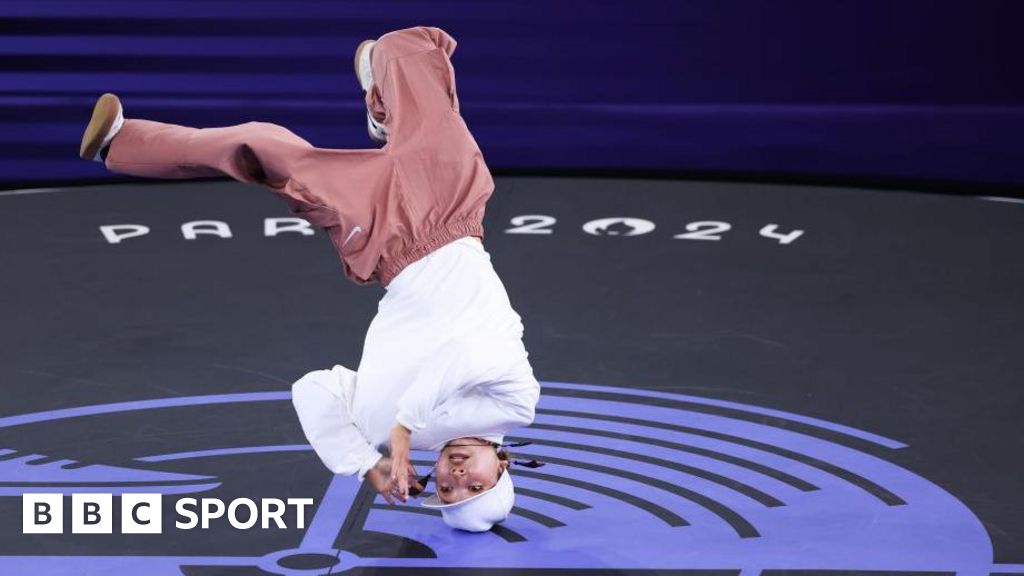There are not many Olympic events, after all, where the judges give their own performance before they head for their seats.
And they were not judging according to a prescribed scoring system of points for moves – they simply used a digital slider to vote.
There were not even set routines – the b-girls, as the female dancers are called, have no idea what music the DJs will choose to play so their 60-second turns (throw downs) are improvised.
But the moves were spectacular – regularly drawing ‘oooohs’ from the crowd as they spun around, balanced on their head or one hand, swung through flairs or froze on the spot while contorted.
And the gestures were immense – finger-wagging and posturing while their rival performed, but also clapping each other on and embracing.
It was clear both fans and athletes were savouring the moment, especially since there is no guarantee it will ever be at the Olympics again.
It is not on the programme for Los Angeles in four years’ time, but this energetic debut may have been watched with interest by the organisers of Brisbane 2032 while they shape their Games.
“I’m super-happy to be here,” said 2022 world champion India, who lost to 671 in the bronze-medal battle.
“It means a lot. It is the first time that breaking has been on such a high platform – it’s the biggest showcase in the world.”
Rapper Snoop Dogg opened the event, while International Olympic Committee (IOC) President Thomas Bach was in the stands to witness the latest sport he has brought into the fold.
Added to the Games as part of the IOC’s drive to attract new and younger audiences, it joined skateboarding, sport climbing and BMX freestyle among urban sports on the schedule.
It is the b-boys’ turn on Saturday to battle for gold in a sport whose roots can be traced to the Bronx, New York in the 1970s as part of hip-hop culture.

